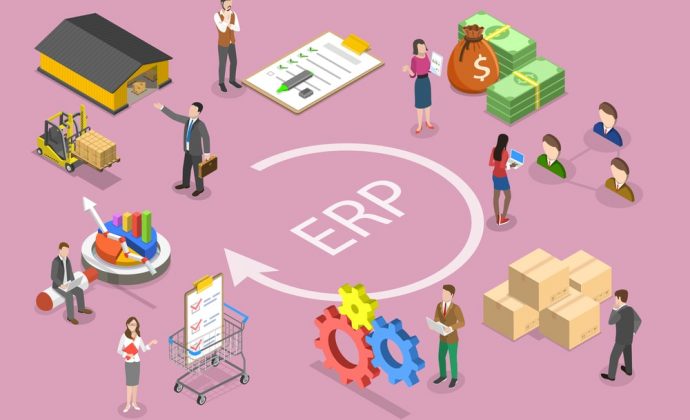In recent years, businesses have started using intelligent technology and software for the automation of their enterprises. To stay up with the ever-changing industry, organizations need to automate and streamline overall procedures. And with ERP Software solutions, organizations may organize data and information, combine disparate databases, improve processes and optimize operations. The Supply Chain contains principally suppliers, producers, distributors, distributors, and customers. It tries to meet the demand and distribution of diverse commodities and services profitably. Just as the supply chain is becoming increasingly complex, so are the regulations governing it. The competence of conventional supply chains is undermined by frequent variations in consumer behaviour, fluctuating demand, a shorter product life cycle, and increased regulatory enforcement. Demand forecasting and evaluation are part of the supply chain management process together with design, implementation, and supervision. The objective of supply chain management is to strengthen the confidence and cooperation between suppliers and customers. The introduction of ERP (enterprise resource planning) technology and artificial intelligence provide the scope for a drastic change. The new technology brings order to the whole supply chain and provides real assistance for corporate operations. ERP is essential to supply chain management because it helps firms function with the innovation, security, and agility that contemporary markets demand. What are the benefits of ERP in supply chain management? Simplifying Management of the System and Purchases In order to receive orders and generate demand, an ERP system is connected to the SCM. The adoption of ERP automates order scheduling. It delivers real-time information on the production status that helps allocate resources as and when necessary. ERP solutions also ease purchasing by automating most of the process. Your company will have access to all pertinent information in one location, enabling faster and more accurate purchase choices than ever before. This promotes information sharing, boosts interdepartmental collaboration, and decreases the delay in decision-making. Together, render power to your business to behave responsibly and stay competitive. Accurate and Comprehensive Order Tracking ERP in logistics and supply chain management keeps the company and the vendor connected inreal timee. Your supplier will be informed when your company gets the order. Each order is crucial and the key to supply chain company success is to produce them on time. ERP systems can generate invoices and automatically send them to customers once products have been sold and shipped. ERP also enables you to accurately track previous orders that are in route as well as keep an eye on the new ones that are still to be processed. It further aids in analyzing the customers’ needs in the future and enhances their experience. An increase in transparency and visibility You may leverage the enormous amount of real-time data that ERP systems save to create meaningful reports. This gives better insight into the business and makes projecting market demands much easier. This helps managers comprehend and recognize what is going on in terms of operations. In addition, an in-depth control system typically makes it feasible to swiftly and properly spot undesirable deviations in the supply chain and rectify the issues. Improved client services Consumers want their issues addressed and they want to be heard. ERP for supply chain streamlines processes and operations in your warehouse. It makes it possible for your company to properly manage a dynamic supply network, which consistently results in on-time order delivery. The objective here is to open the door for a better connection with your consumers while making it simpler for them to get in touch whenever they need assistance. This fosters trust among your customers and results in repeat business and client retention. Supply handling is made easy To provide error-free monitoring and inventory control, the ERP platform includes extensive functionalities. It enables error-free tracking and managing inventory. This efficiency in managing supplies removes order fulfilment mistakes and reduces overhead costs, thereby increasing the turnover of the business. One of the most crucial parts of a supply chain is inventory..The growing business complexities have made these systems a crucial part of supply chain organizations To identify the most suited ERP for your organization, you need start by outlining what your needs are. Some characteristics that you’ll want to have in a decent ERP include data analysis and data export, configurable templates and reports, intuitive user interface, connectivity with other software systems, adequate opportunity for modification as your company expands, etc. ERP has already become an indispensable feature of corporations and practically all major sectors. They are passionately employed for numerous advantages to the population. We, at SMB Solutions, have considerable expertise in bespoke ERP software development. Our development team has years of expertise in the market creating unique ERP systems to meet various corporate goals and demands.
ERP benefits for supply chain management




